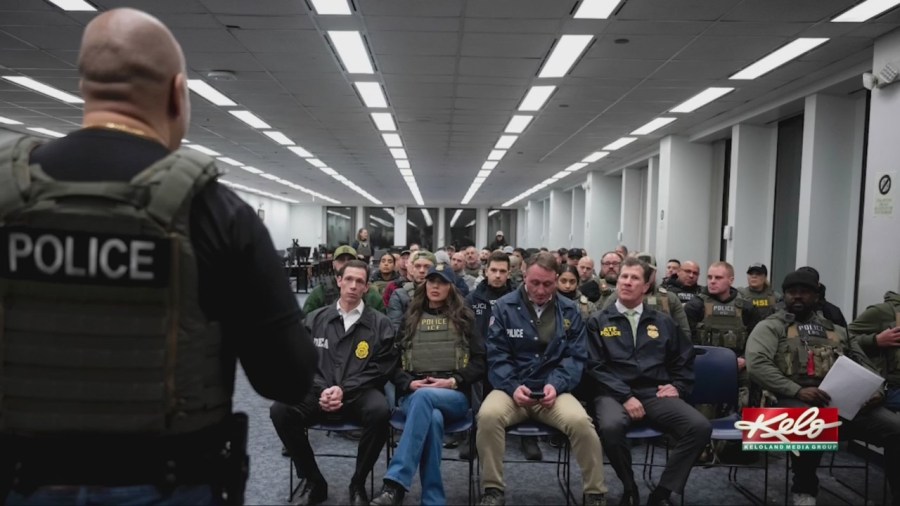SIOUX FALLS, S.D. (KELO) – Part of President Donald Trump’s crackdown on immigration includes lifting restrictions on where federal agents can conduct immigration enforcement. Previously U.S. Immigration and Customs Enforcement (ICE) agents were not allowed to make arrests in areas like hospitals, churches and schools but now that’s all changed as of Jan. 21 – and school districts in South Dakota are addressing it.
On Jan. 30 the Huron School District’s superintendent, Kraig Steinhoff, sent out a statement to staff instructing them on what to do if ICE shows up on school property.
Immigration attorney, Henry Evans with Evans Law P.C. in Sioux Falls says he’s worked with ICE many times throughout his decades practicing law.
“ICE officers and attorneys that I have worked with have always been professional, willing to work when they can work. Sometimes the statute is so definitive that a person has to be removed from the United States. Regardless of how good that person is meaning no criminal records. So they have a tough job,” Evans said.
Teen sentenced to 20 years for manslaughter
With ICE now allowed into places like schools, Evans is uncertain about what that would look like.
“From my experience, (ICE) would not want to escalate the problem but would want to resolve the problem as quickly and professionally as possible,” Evans said.
The American Immigration Lawyer Association and The School Superintendents Association are two national resources to offer guidelines.
“Your family needs to have a plan and to discuss the possibility because if you’re here undocumented in the United States or without status at some point in immigration law, your past is going to catch up to you no matter who is in the White House,” Evans said.
The South Dakota Education Association president Loren Paul sent us this statement regarding ICE Raids in public schools.
“First and foremost, all students have a constitutionally protected right to obtain a public education, regardless of their legal status. As educators, we have a professional responsibility to foster inclusivity, empower our students, and advocate for policies that create a safer, more supportive environment for all students regardless of immigration status.
Considering the recent policy change rescinding the prohibition on ICE conducting immigration enforcement in public schools, we strongly encourage schools to adopt policies that limit ICE enforcement on school grounds. Schools must prioritize the privacy and safety of all students, ensuring that education remains accessible to everyone, regardless of immigration status. This commitment to safety is non-negotiable.”
Read more on where ICE can operate.







